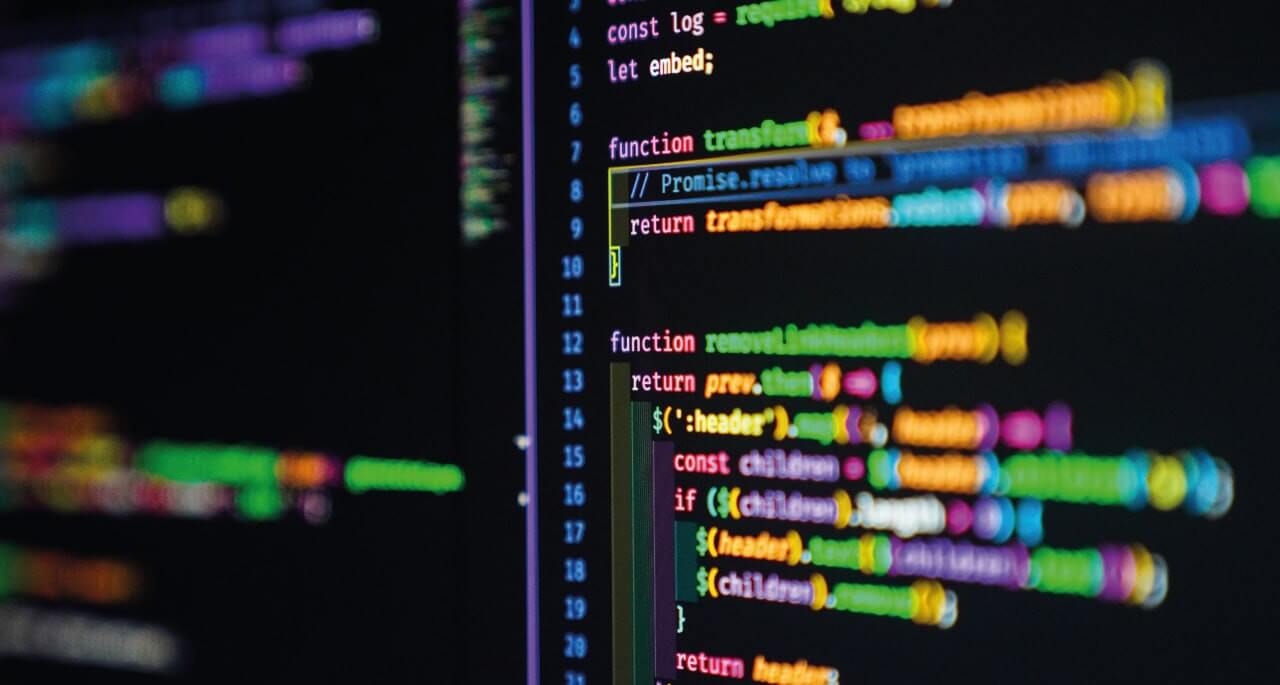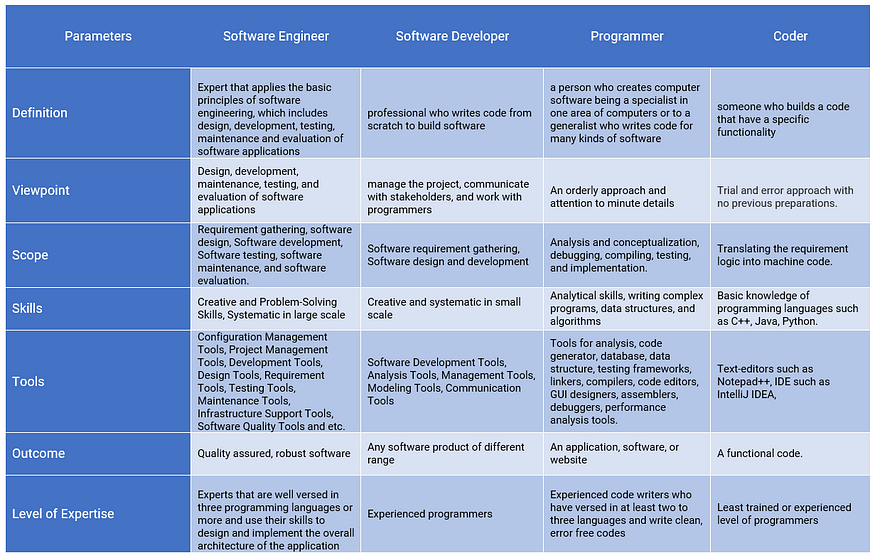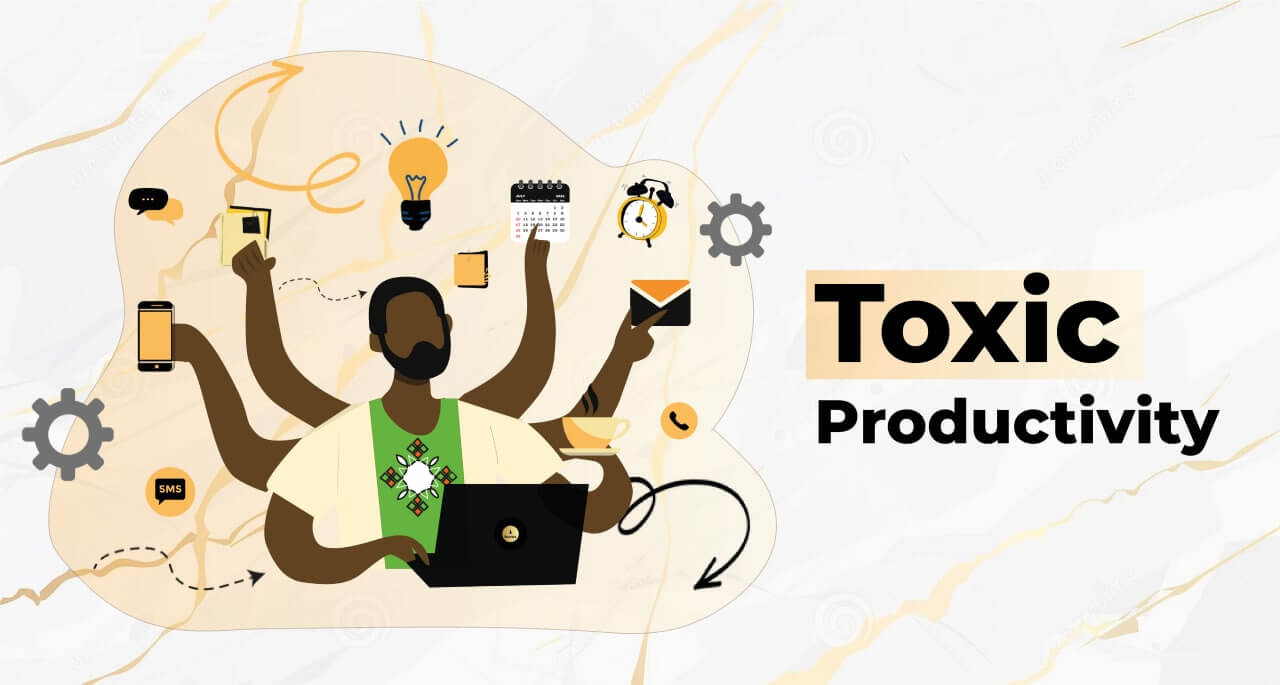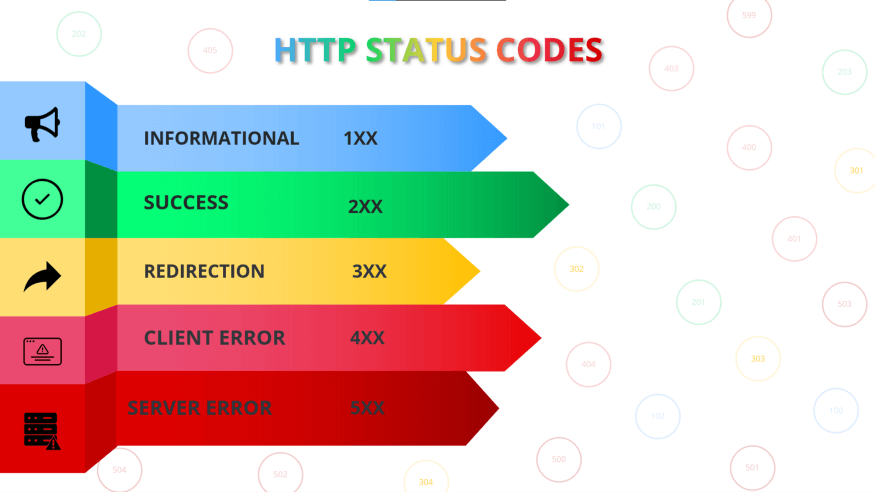
Software Engineer vs Software Developer vs Programmer vs Coder: The Distinctive Endless Debate
Nowadays where technology is high coupled with our lives, the software industry is proliferating. And most of the terms in the industry such as software engineer, software developer, programmer, and coder are regarded to be used interchangeably. However, each term is distinctively different from the other. Today we will see how these terms or roles are really different in scope they address and the technical perspective they deal with.
Software Engineer
According to a definition on Wikipedia Software Engineering is the systematic application of engineering approaches to the development of software. And someone who applies the basic principles of software engineering, which includes design, development, testing, maintenance, and evaluation of software applications.
A software engineer’s responsibilities may differ according to what category(system engineer or application engineer) they are in, but most importantly includes tasks that made the deal of the system as a whole, giving them the opportunity to come up with solutions that entire software is managed by on applying engineering principles to products successful development.
Software Engineers are more systematic and tend to work with others in teams.
Software Developer
The title software developer or developer is a term coiled for a professional who writes code from scratch to build software. As a developer, the main focus is to create high-quality software products ranging from web apps like Amazon to a desktop app like Blender to a mobile app like what’s app.
A Software Developer is responsible for managing the project, communicate with stakeholders, and work with programmers. Thus, this role requires skill in project management and communication, while also possessing a significant amount of technical expertise.
A software developer performs what a software engineer does but on a smaller scale.
Programmer
A programmer or computer programmer refers to a person who creates computer software being a specialist in one area of computers or to a generalist who writes code for many kinds of software.
A programmer is involved in the development of fully functioning software. To do so a programmer will have to have a range of skills, tools to use, and scope to deal with.
Coder
Coding is the act of translating the requirement logic of a certain client's need into a machine code that is understandable by a computer. It’s the first step to build a functional code by just knowing basic knowledge of programming languages such as Java, C#.
A coder utilizes simpler tools such as text editors (sublime text, atom, notepad++) and IDE such as Intellij IDEA in order to build a code that has a specific functionality.

Considering a certain big company or organization, the difference between software engineer, software developer, programmer, and coder is described as follows. A managing board designing the overall company structure, implementing design, verifying and evaluating the workflow based on a set of defining rules, and maintaining whenever something goes wrong in the company work process can explain the responsibilities of a software engineer in the big picture. Whereas the CEO who is responsible for deciding on behalf of the company in order to make the company profitable resembles the role of a software developer. Being a director of a certain department and appear to be thriving for the best of the company represents a programmer-defined in layman’s terms. And finally acting upon a specific project in a certain department of a company is considered to be an example of a coder role.
To sum up, the terms coiled up in the fast-paced tech world seem to be similar and used interchangeably. However, there is so much difference that we now have to realize, where each of the roles is an essential part of the other in a sense of requiring a lot more experience, skill, creativity, knowledge, and problem-solving.

















Post Comment